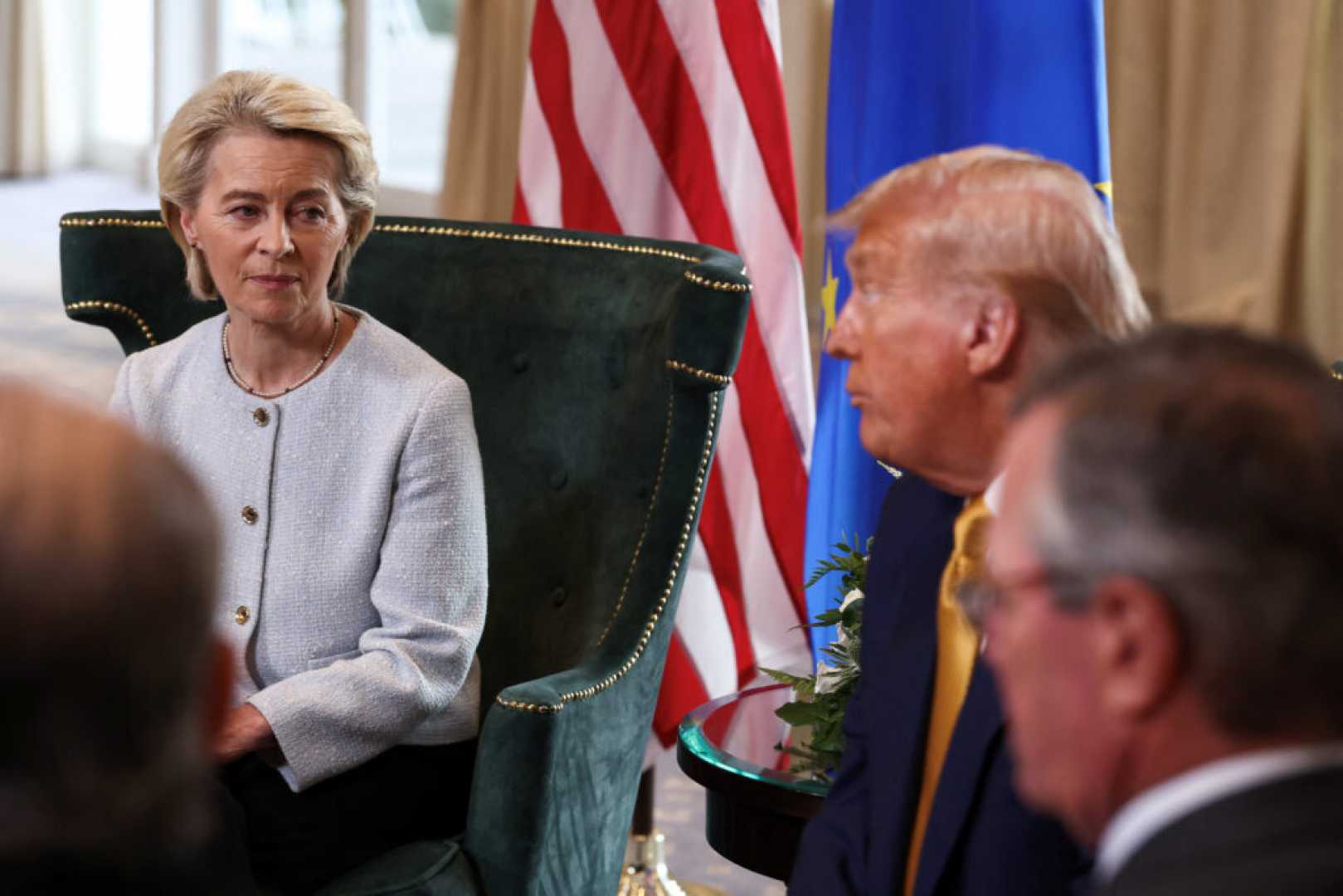Business
U.S., EU Announce New Trade Deal Amidst Ongoing Negotiations

Turnberry, Scotland — The United States and the European Union revealed new details about their trade framework on Thursday, reaffirming a 15% tariff on most goods from the EU, including pharmaceuticals and semiconductors. This announcement follows a trade deal initially disclosed by President Donald Trump and European Commission President Ursula von der Leyen at Trump Turnberry golf club in July.
The U.S. will apply the higher rate of either the Most Favored Nation (MFN) tariff or the 15% tariff on EU exports. As of September 1, this will affect several goods, including natural resources, aircraft parts, and generic pharmaceuticals. EU Trade Commissioner Maros Sefcovic stated, “This is the most favorable trade deal the U.S. has extended to any partner,” emphasizing that it’s only the beginning of an evolving relationship.
In exchange, the EU committed to eliminate tariffs on all American industrial goods and improve market access for certain seafood and agricultural products. The deal is seen as a step toward stabilizing the economic ties between the two regions and represents a significant financial commitment, including $750 billion for U.S. energy purchases and $600 billion in investments by 2028.
Sefcovic called the agreement a strategic deal that aims to benefit several industries, including cars and pharmaceuticals. The announcement has been met with some skepticism; European political leaders have raised concerns about the potential imbalance in the deal.
Notably, the agreement does not address the EU’s Digital Services Act, a contentious issue in prior discussions. Sefcovic acknowledged that digital trade issues remain unaddressed and that the wine and spirits sector is excluded from this deal. “These doors are not closed forever,” he noted, suggesting the potential for future negotiations.
The deal has also prompted discussions about the automotive sector, where tariffs on European autos and parts will be implemented only after the EU introduces legislation to lower its own industrial tariffs on U.S. goods. The German automotive industry has expressed concern that the 15% tariff could significantly impact their finances.
The latest trade framework is viewed as a significant milestone, aiming to enhance trade talks amid a backdrop of ongoing negotiations with various global partners and geopolitical shifts. A senior U.S. administration official highlighted the intention to continue refining the agreement as both parties adapt to changing market dynamics.












